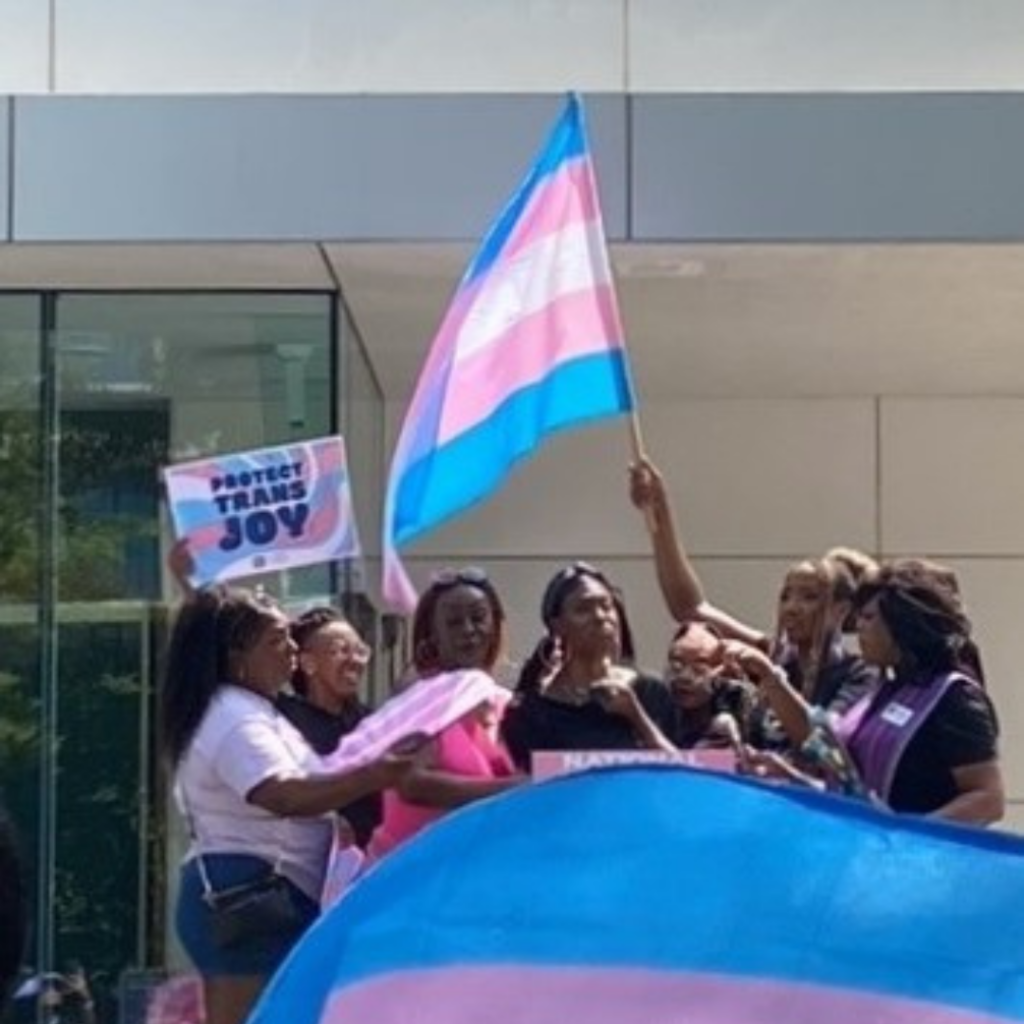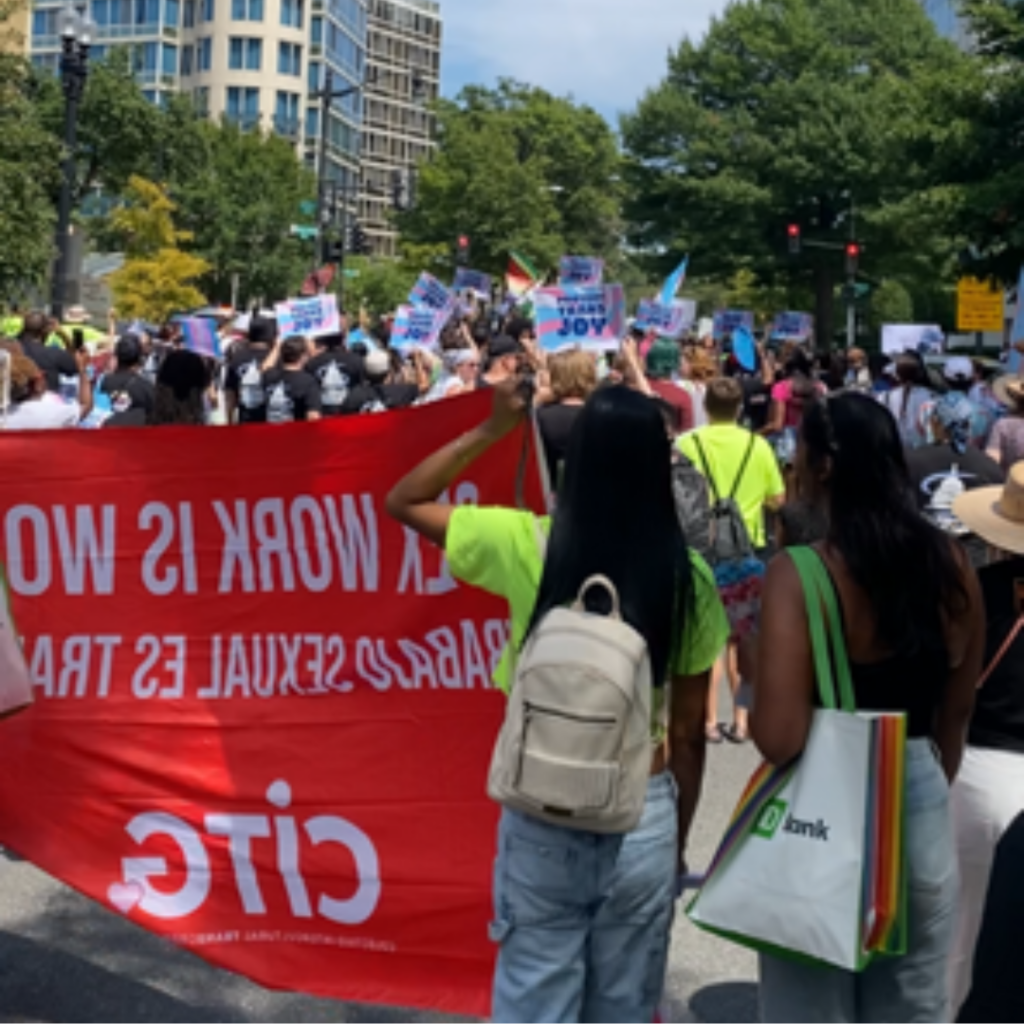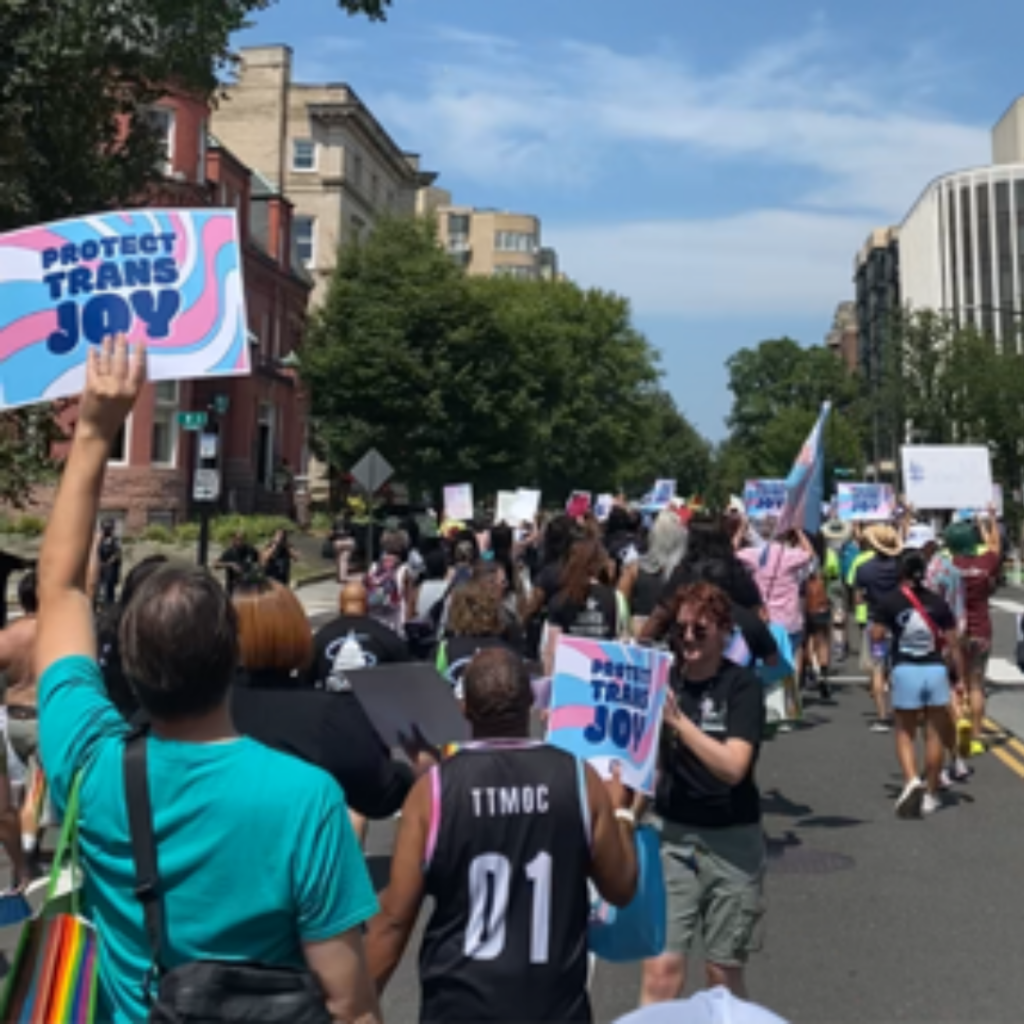Septiembre

As one of hundreds of trans and non-binary people joining together on August 24 for the National Trans Visibility March, I couldn’t help but feel emotional. We marched in solidarity down Rhode Island Avenue, a chorus of hundreds of voices shouting “Trans Power!” in unison, a sea of fists and pink-and-blue signs raised in the thick summer sky. I could feel tears welling just below the surface as I thought about how far we had come as a community—and how far I had come individually. I never thought in a million years I’d be surrounded by so many trans and non-binary siblings, never thought I’d be out in the open, out in the streets, as a proud trans woman. The small town in Utah where I grew up—the small town that almost crushed a dysphoric little kid—seemed so far away. We’ve come so far, I let myself think. I’ve come so far.
And then the march stopped abruptly, word trickling from the front that we had gone down the wrong street.
It seemed an apt metaphor for both the 2024 National Trans Visibility March and for the trans community as a whole: We’ve made so much progress over the past several years, but there are still roadblocks in the way, some of them of our own choosing, some of them of our own failures to get on the same page as others organizing and leading the movement.
Fortunately, we hadn’t gone too far down Rhode Island Avenue and were able to quickly turn around, and soon enough we were back marching down the paths that had been forged by the mostly Black trans activists who had organized the National Trans Visibility March.

The NTVM brought hundreds of trans and non-binary folx from across the country to Washington, D.C. This year’s event focused “on the importance of political visibility and the need for transgender individuals to be visible, not only in society but also in the political sphere where decisions impacting their lives are made.” The need for us to be part of the political process is more critical than ever before, as decisions affecting our futures, our bodies, and our choices are being made in statehouses and courtrooms, often without our voices. We all know there are loud and powerful individuals who hope to erase us, to force us back into our closets and into our hidden dysphoria. At its core, the message of the NTVM was that we won’t be erased. We won’t go back. And we sure as hell won’t be quiet.

Back on the route, we sang and shouted in unison, our voices growing progressively hoarser. We waved our flags and held aloft our signs. We sweated together in the oppressive D.C. humidity. We were more than just visible: we were a force that blocked traffic, that drew upon the power of the local government to protect us, that got our cisgender allies to come out of their condos to wave and clap in solidarity.
As we marched around D.C.’s DuPont Circle—the beating heart of the capital’s traditionally gay neighborhood—I felt the tears starting to well up again.
We’ve come so far.
I’ve come so far.
And there’s more to come.
-Shane McCammon
NTBA Treasurer

